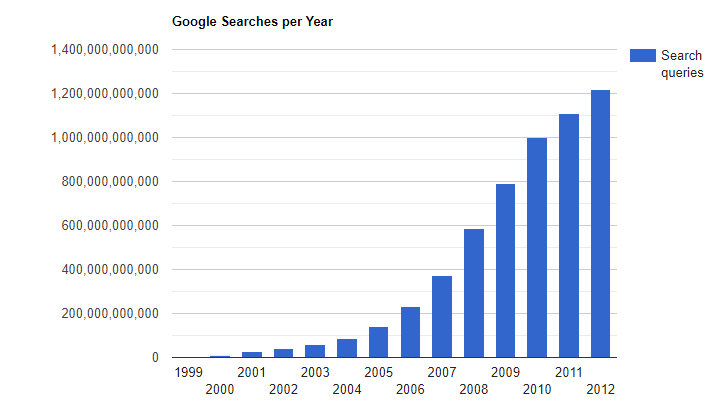Does my Business need a Website? 10 Arguments in Favor & 5 Against
In today's digitally driven world, having a strong online presence is crucial for businesses of all sizes. Yet, despite the numerous benefits a website can offer, some business owners remain skeptical about its necessity. If you find yourself questioning whether your business needs a website, let's delve into the reasons why having one is not just beneficial but essential.
1. Credibility and Professionalism: A website acts as a digital storefront for your business, conveying professionalism and trustworthiness to potential customers. Just as you wouldn't expect a reputable business to operate without a physical address, an online presence through a website is equally important in establishing credibility in the digital realm.
2. Visibility and Reach: With billions of people actively using the internet, a website significantly expands your reach beyond local markets. It allows you to connect with potential customers globally, increasing visibility and creating growth opportunities that would otherwise be inaccessible.
3. 24/7 Accessibility: Unlike a physical store with set operating hours, a website is accessible to customers round the clock, allowing them to learn about your products or services, make purchases, and contact you at their convenience. This accessibility enhances customer satisfaction and maximizes sales potential.
4. Competitive Edge: In a competitive market, a well-designed website sets you apart from competitors who may rely solely on traditional marketing channels. It enables you to showcase your unique selling points, engage with customers, and stay ahead of the curve in terms of innovation and customer experience.

5. Enhanced Customer Experience: A user-friendly website provides customers with a seamless browsing experience, making it easy for them to find the information they need and navigate through your offerings. By prioritizing user experience, you foster positive interactions that contribute to long-term customer loyalty.
6. Marketing and Branding Opportunities: Your website serves as a central hub for all your marketing efforts, allowing you to showcase your brand identity, share valuable content, and engage with your target audience through various channels such as blogs, social media integration, and email marketing.
7. Data Collection and Analysis: Through tools like Google Analytics, a website provides valuable insights into customer behavior, preferences, and trends. This data empowers you to make informed decisions, refine your marketing strategies, and optimize your website for better performance and conversion rates.
8. Flexibility and Scalability: Whether you're a small startup or a large corporation, a website offers flexibility and scalability to adapt to your business needs and growth trajectory. You can easily update content, add new features, and expand your online presence as your business evolves.
9. Customer Support and Engagement: A website serves as a platform for delivering exceptional customer support, offering FAQs, live chat, and contact forms to address customer inquiries promptly. By fostering open communication and engagement, you build stronger relationships with your audience and encourage repeat business.
10. Future-Proofing Your Business: In an increasingly digital landscape, having a website is not just about meeting current demands but also future-proofing your business against unforeseen challenges and market shifts. It positions you to leverage emerging technologies, reach new audiences, and adapt to changing consumer behaviors.
5 Scenarios Where Your Business Might Not Need a Website
1. You're Not Looking to Grow: Just as some businesses thrive within their current size and scope, you may find that your business is already meeting your objectives without the need for expansion. If you're content with your current client base and revenue stream, investing in a website to attract new customers may not align with your business goals.
2. You Have Enough Leads: If your business consistently generates leads through referrals, networking, and other offline channels, you may question the necessity of a website. While a website can enhance your online presence, if you're satisfied with the volume and quality of leads you're currently receiving, you may opt to focus your resources elsewhere.
3. You're Not Hiring Any Time Soon: A website can be a valuable tool for attracting top talent and showcasing your company culture. However, if you're not actively seeking to expand your team or recruit new employees, the immediate need for a website may be less pressing. Direct recruitment efforts and word-of-mouth referrals may suffice for your current hiring needs.
4. You're Operating in a Virtual Monopoly: In rare cases where businesses enjoy a virtual monopoly or have minimal competition in their niche, the urgency of having a website may be diminished. If your products or services are in high demand, and customers have limited alternatives, investing in a website may not be a priority for sustaining your business.
5. You Don't Expect to Sell the Company Any Time Soon: While a website can enhance the perceived value of your business and contribute to its attractiveness to potential buyers if selling your business is not on your radar in the foreseeable future, you may question the necessity of investing in a website. In such cases, focusing on operational efficiency and profitability may take precedence over website development.
Have Questions?
Wondering if your business would benefit from a website or landing page? Submit an inquiry
and we'll get back to you with answers shortly!
